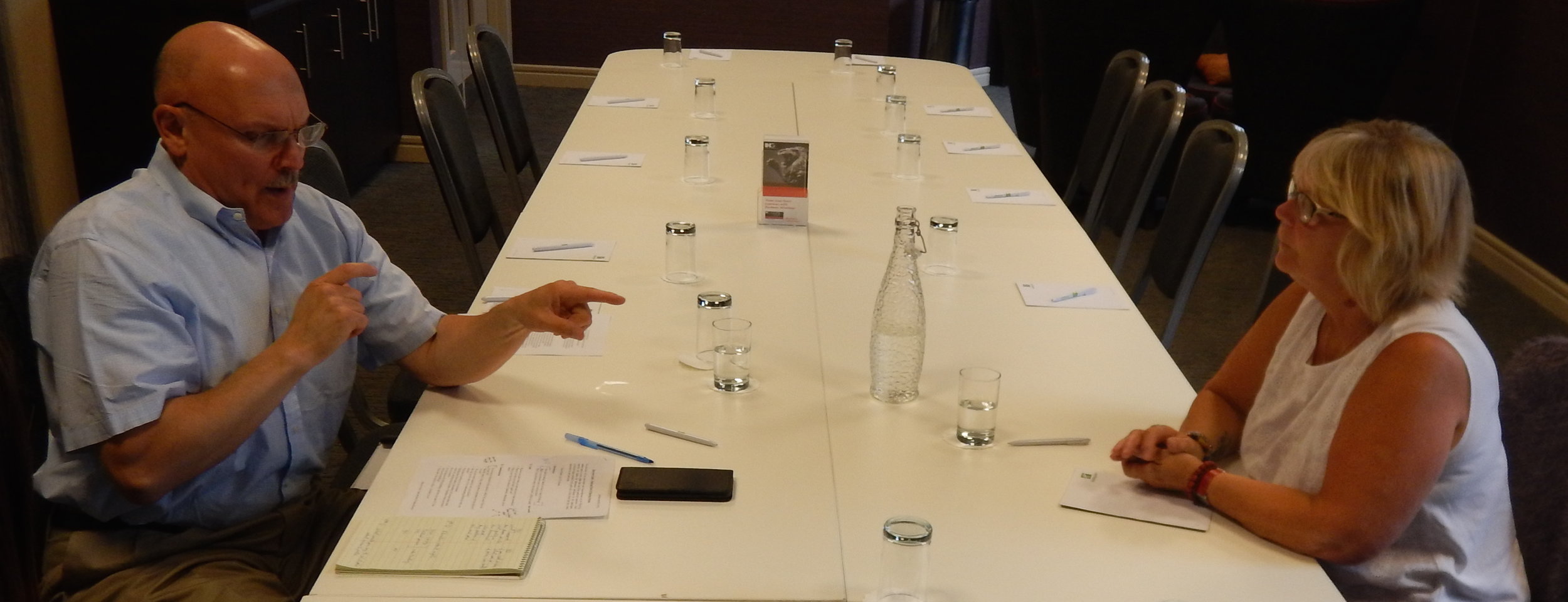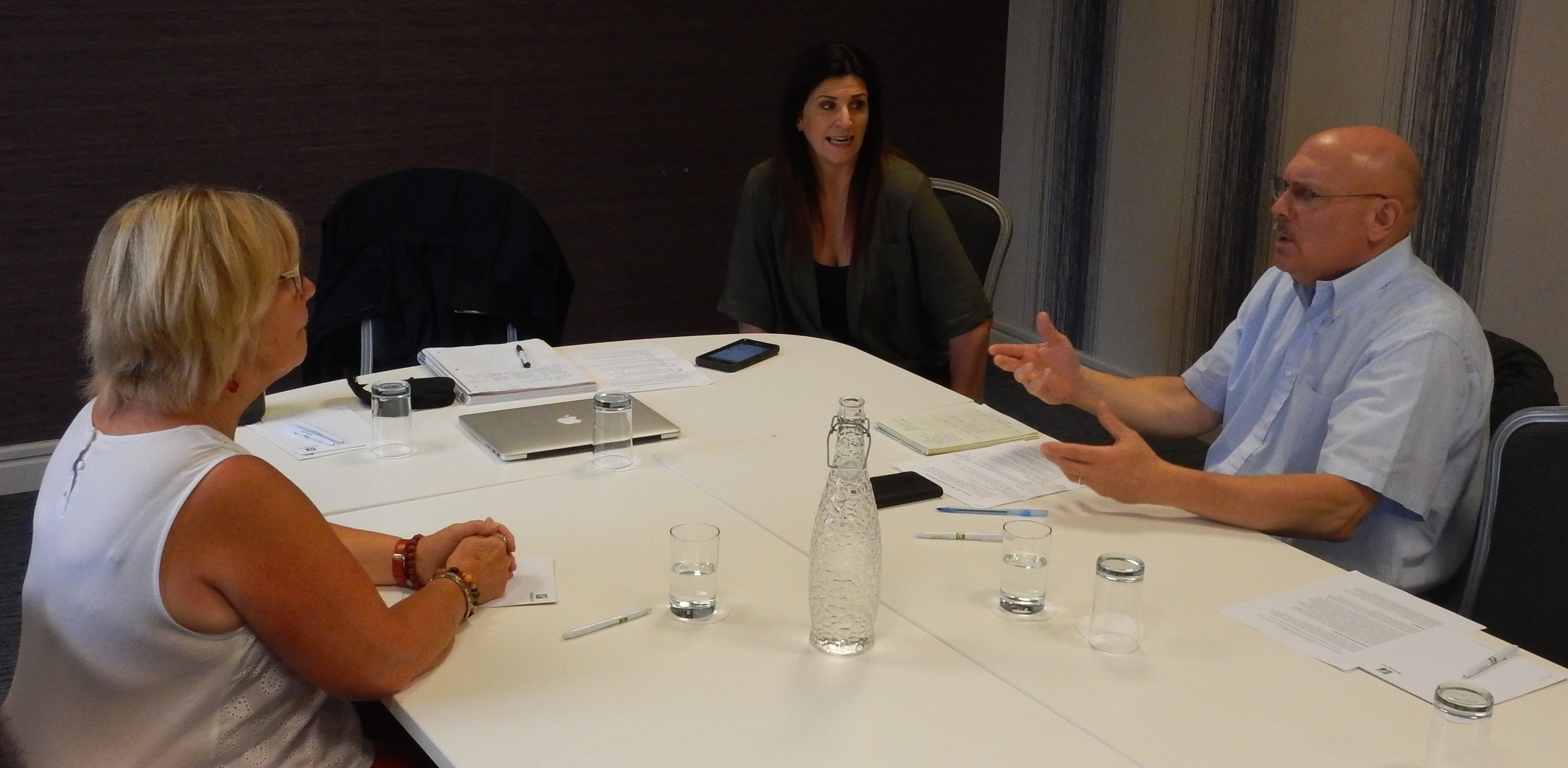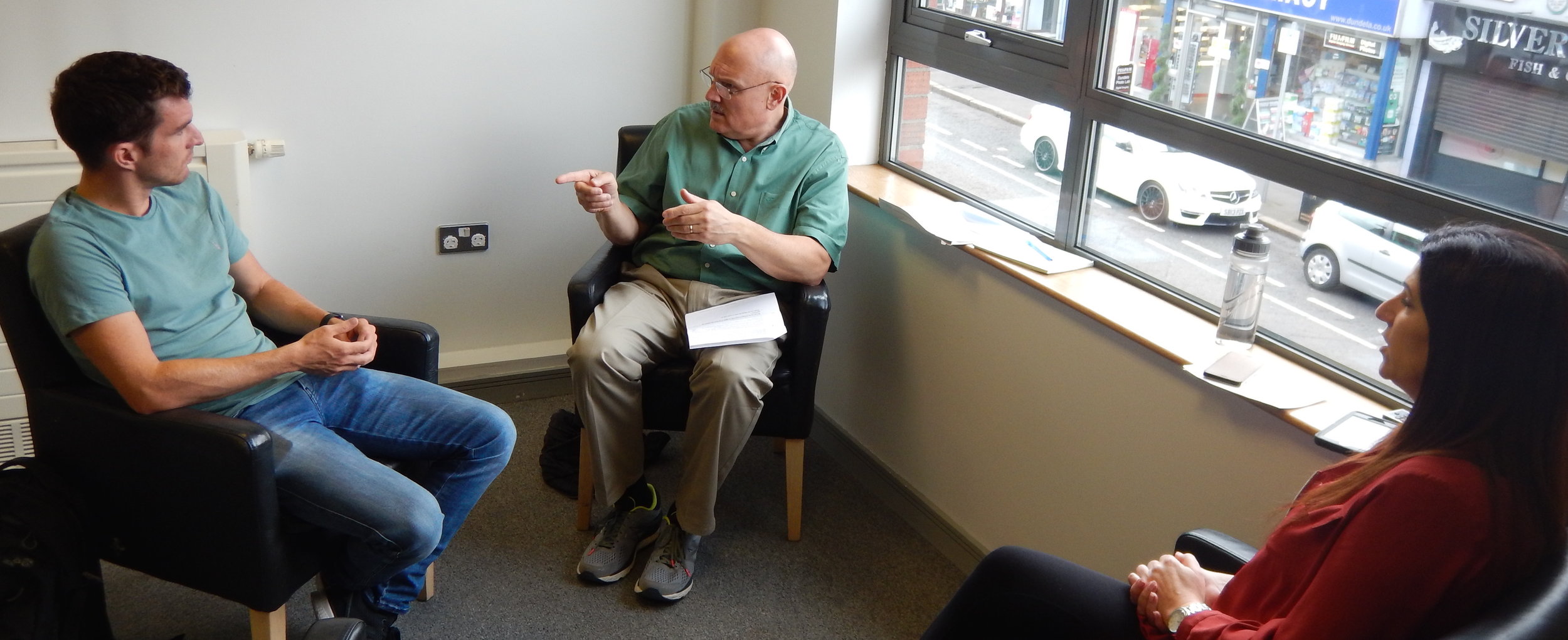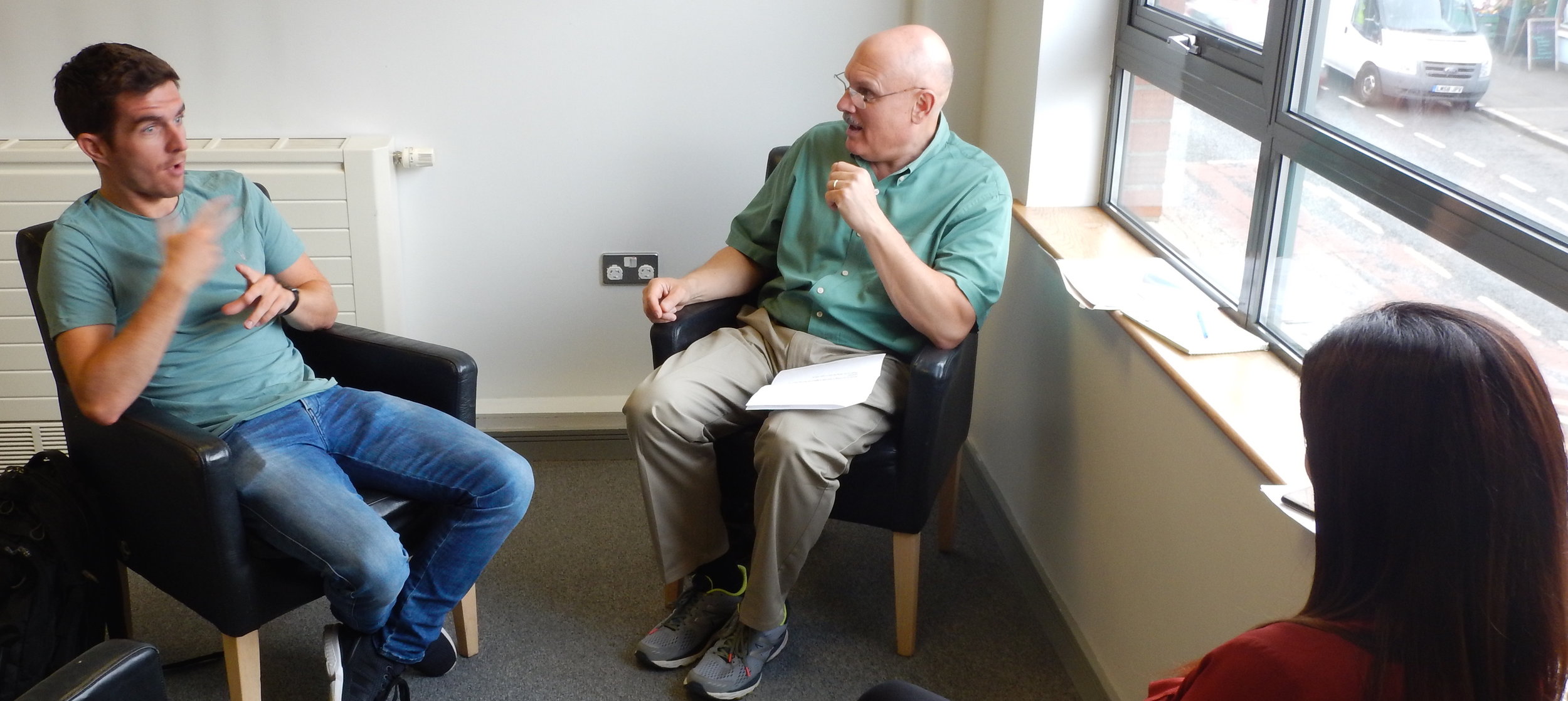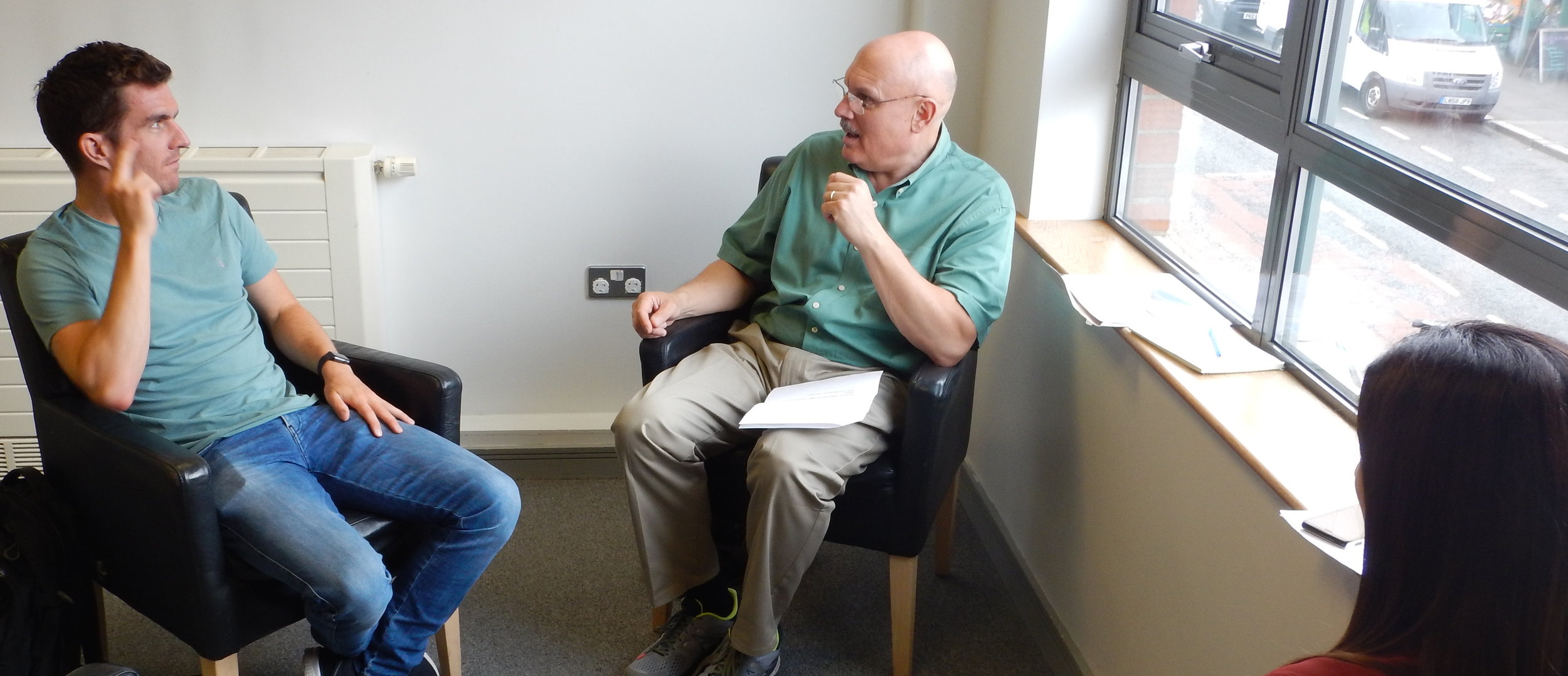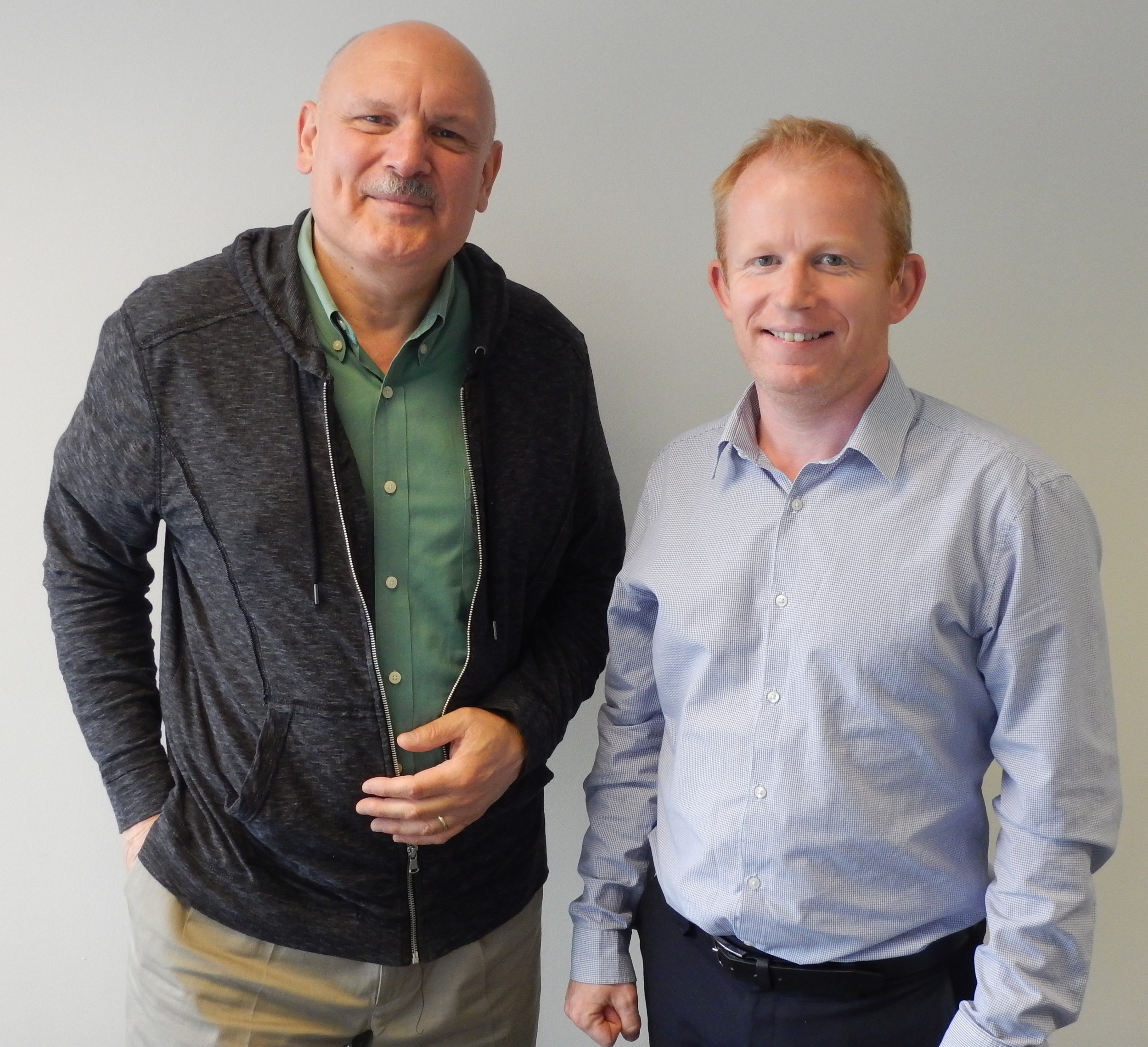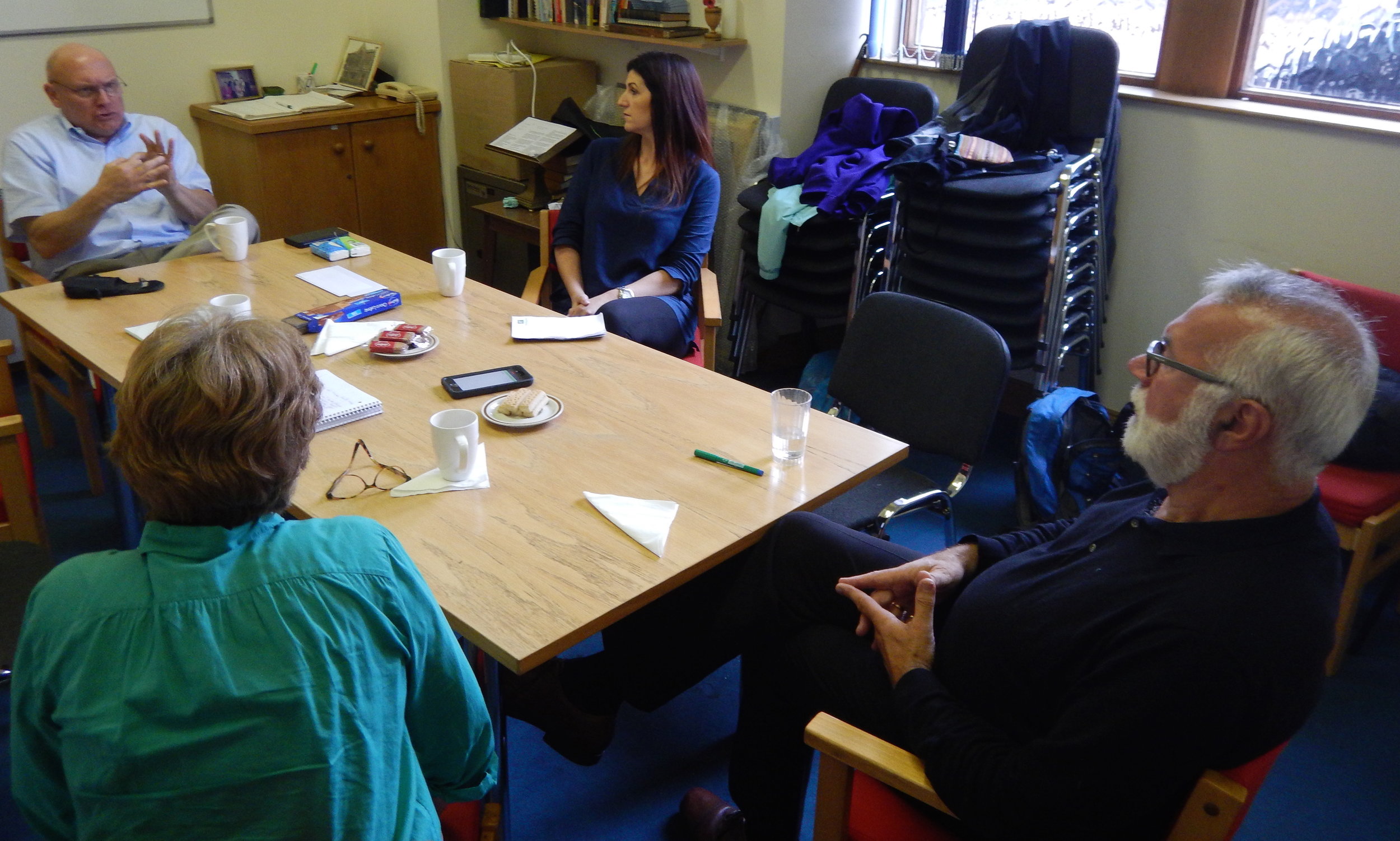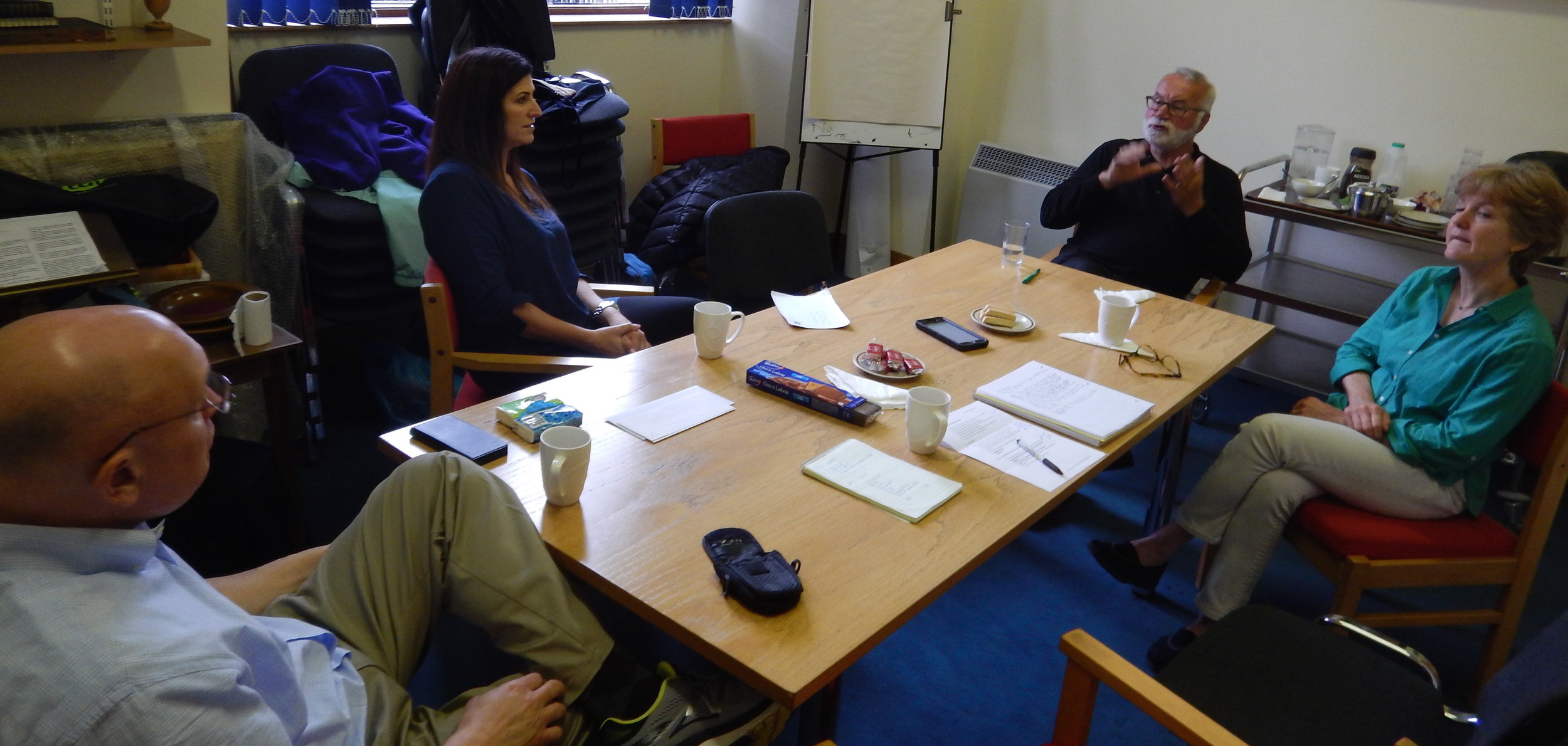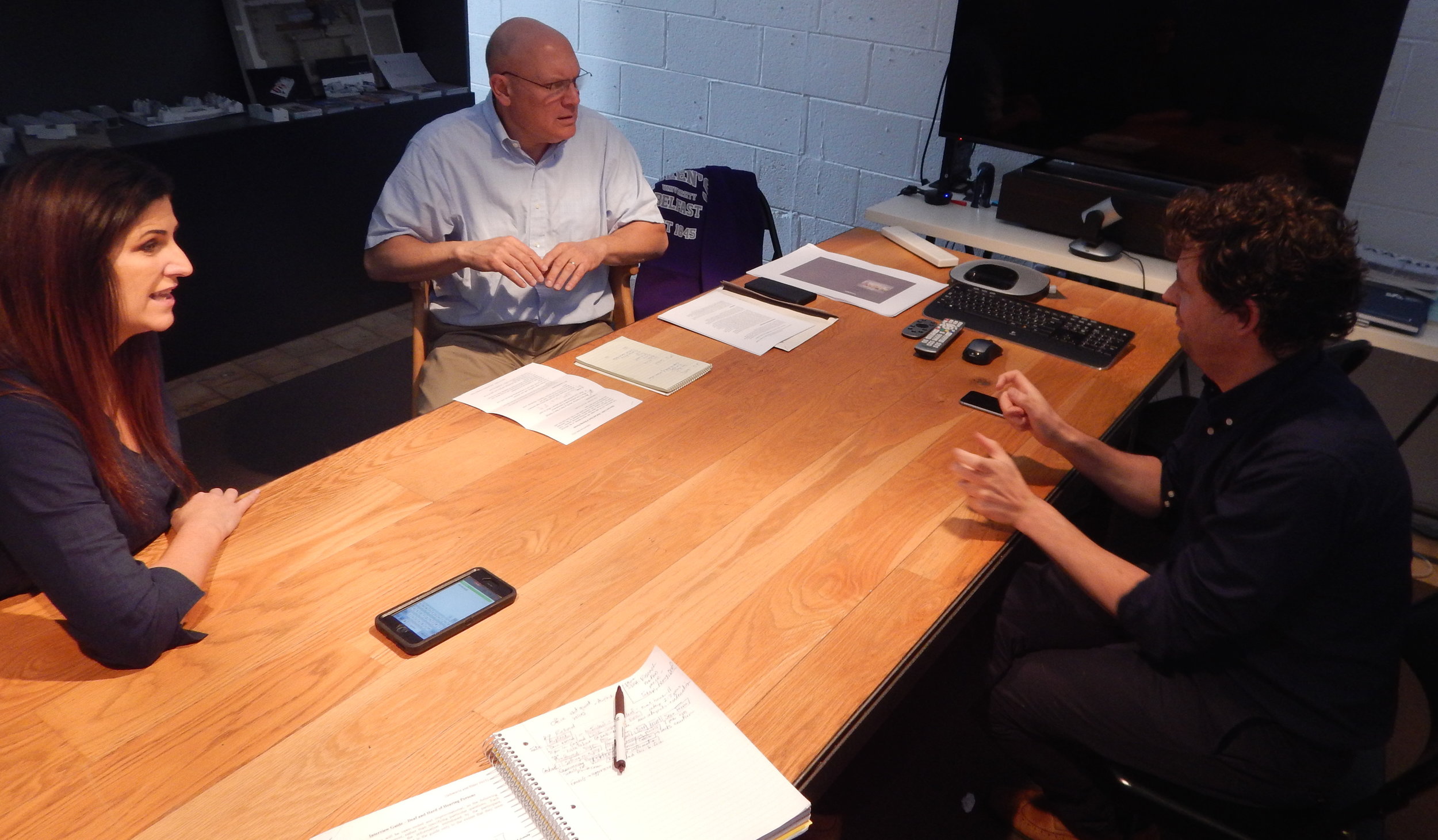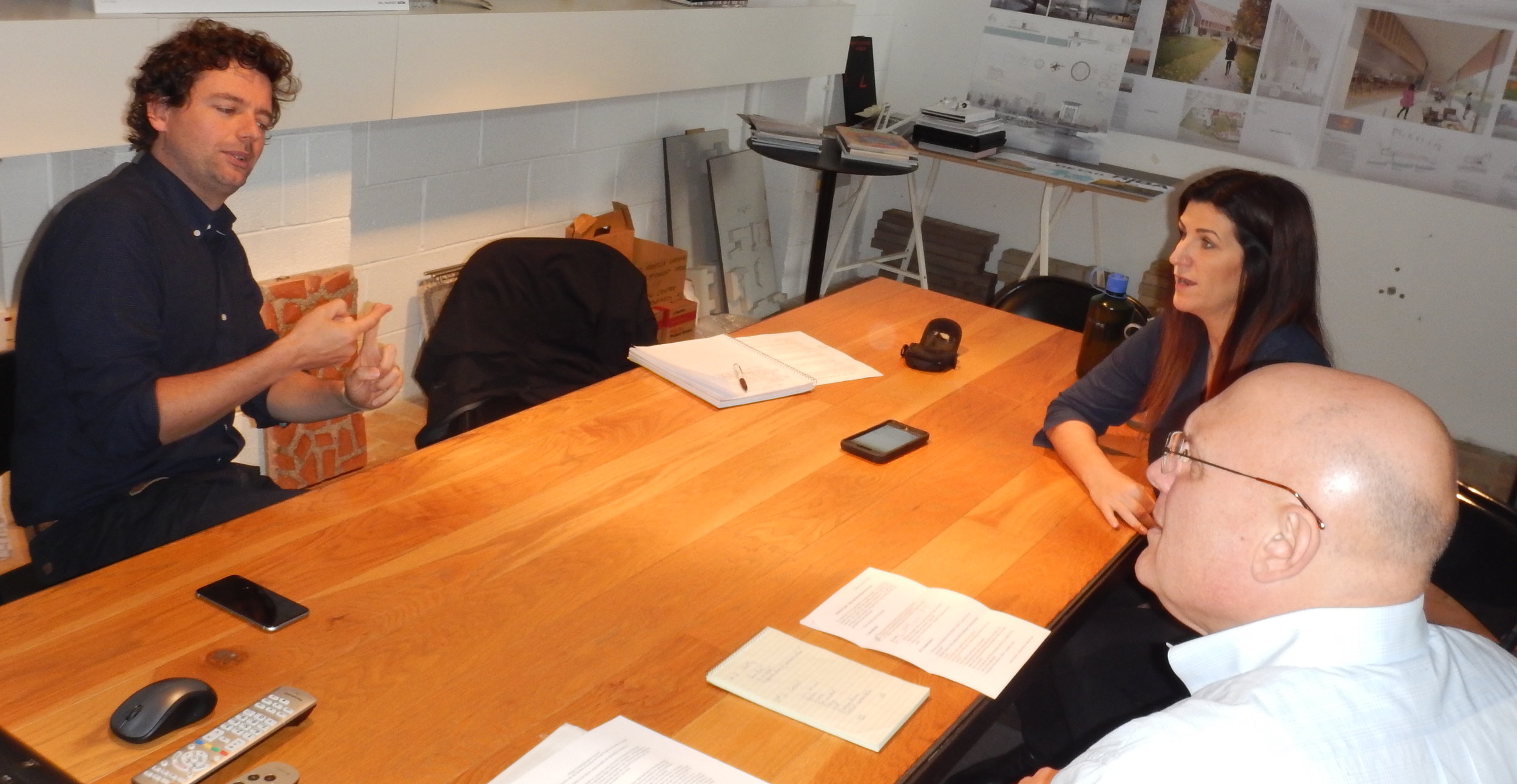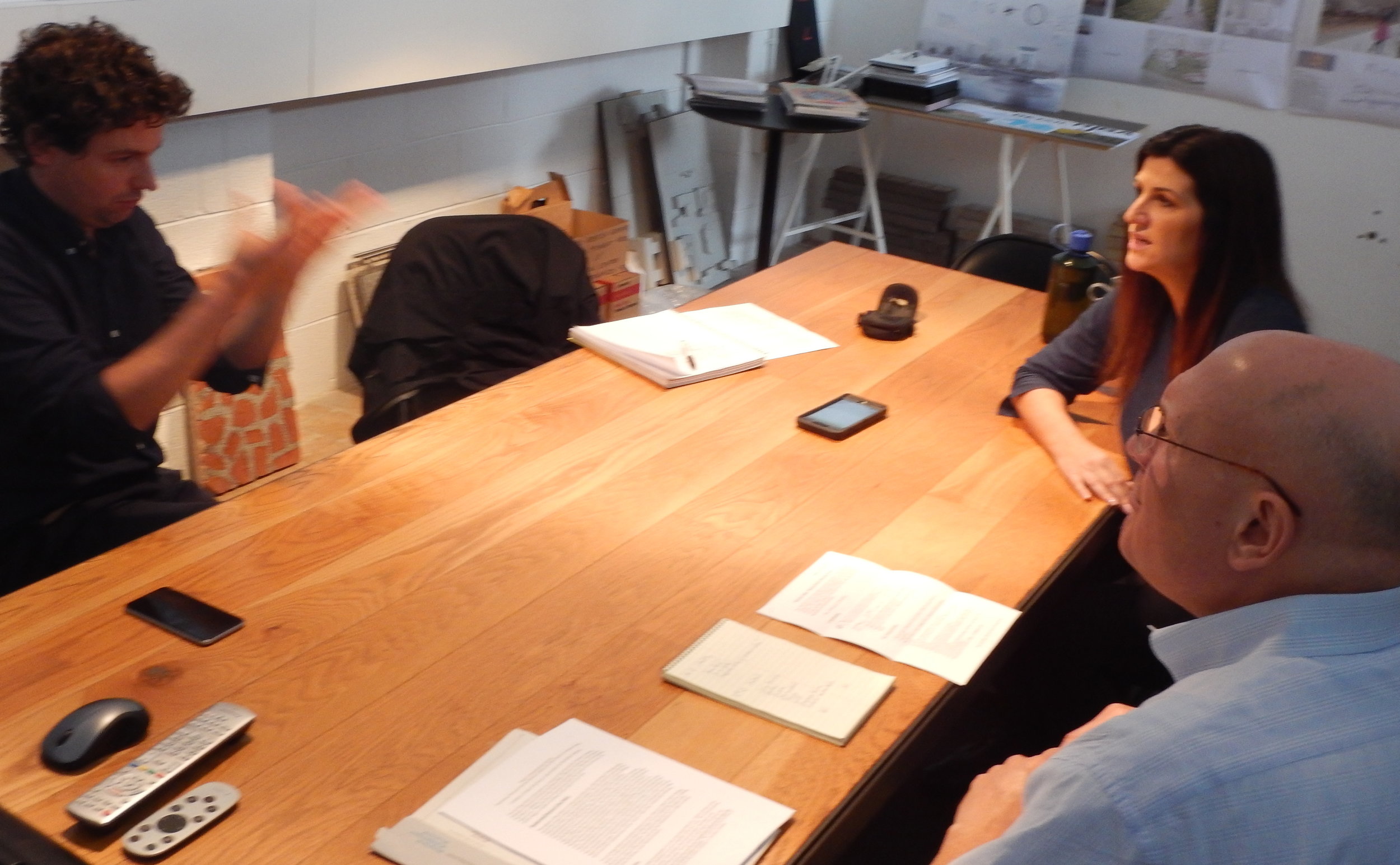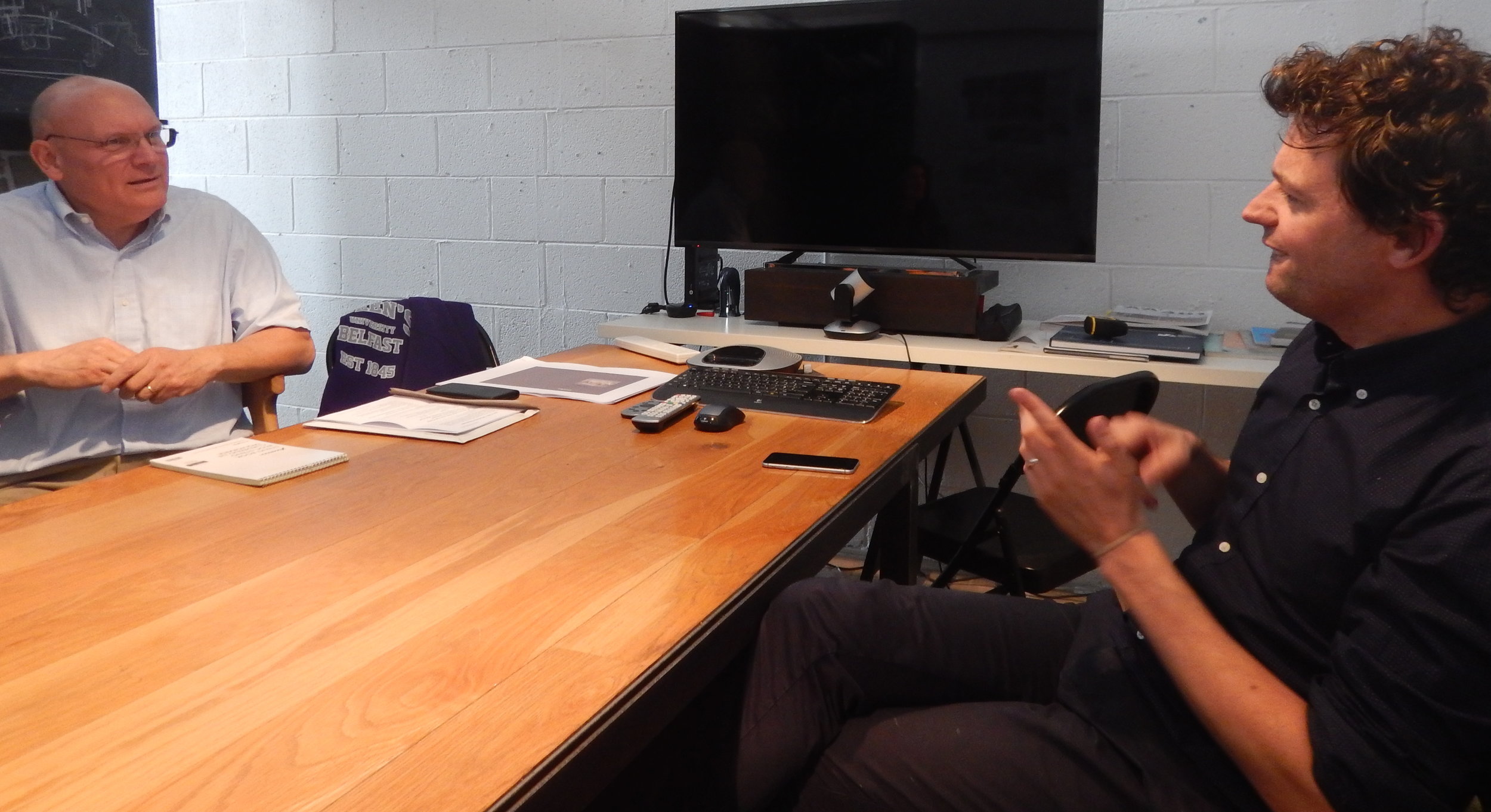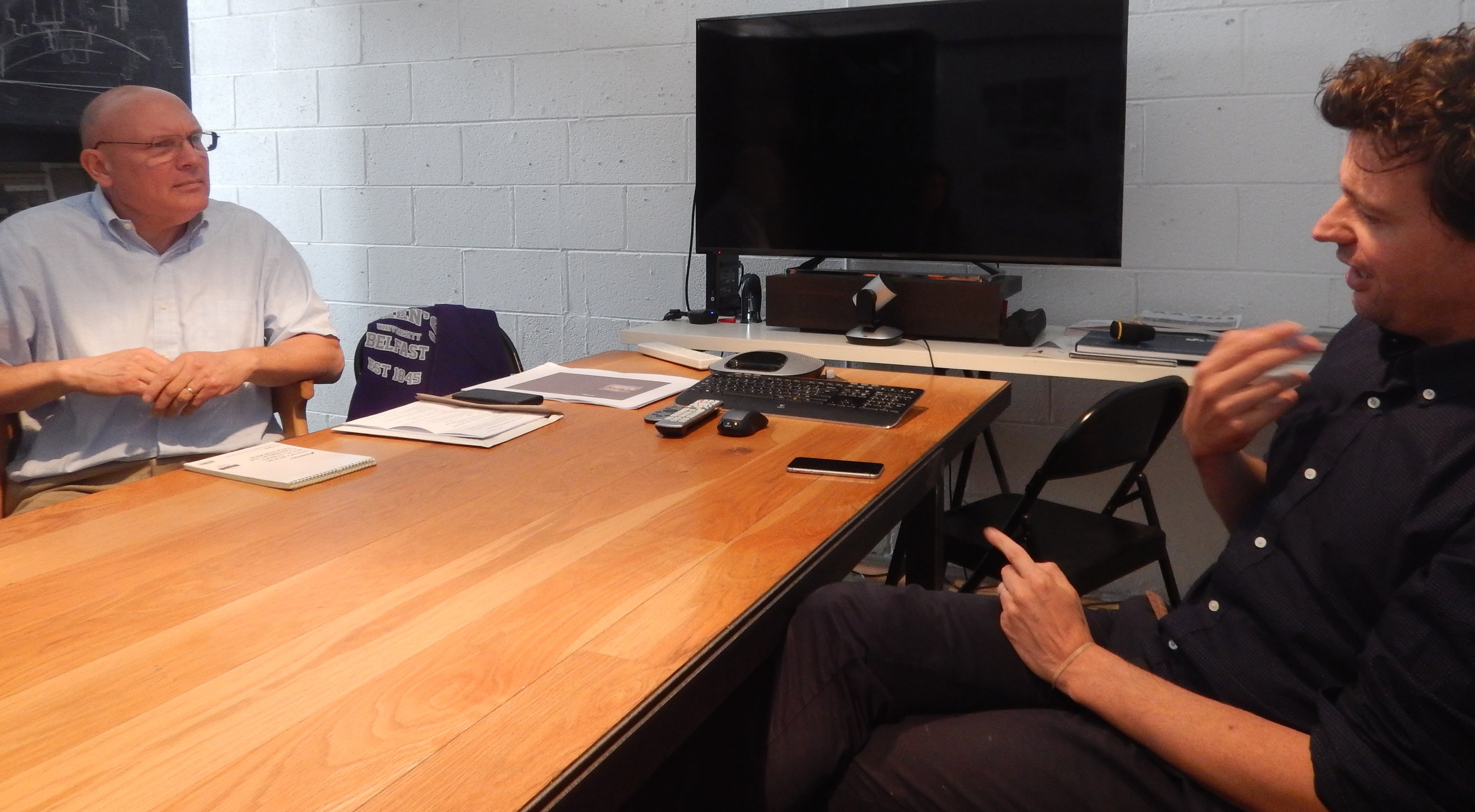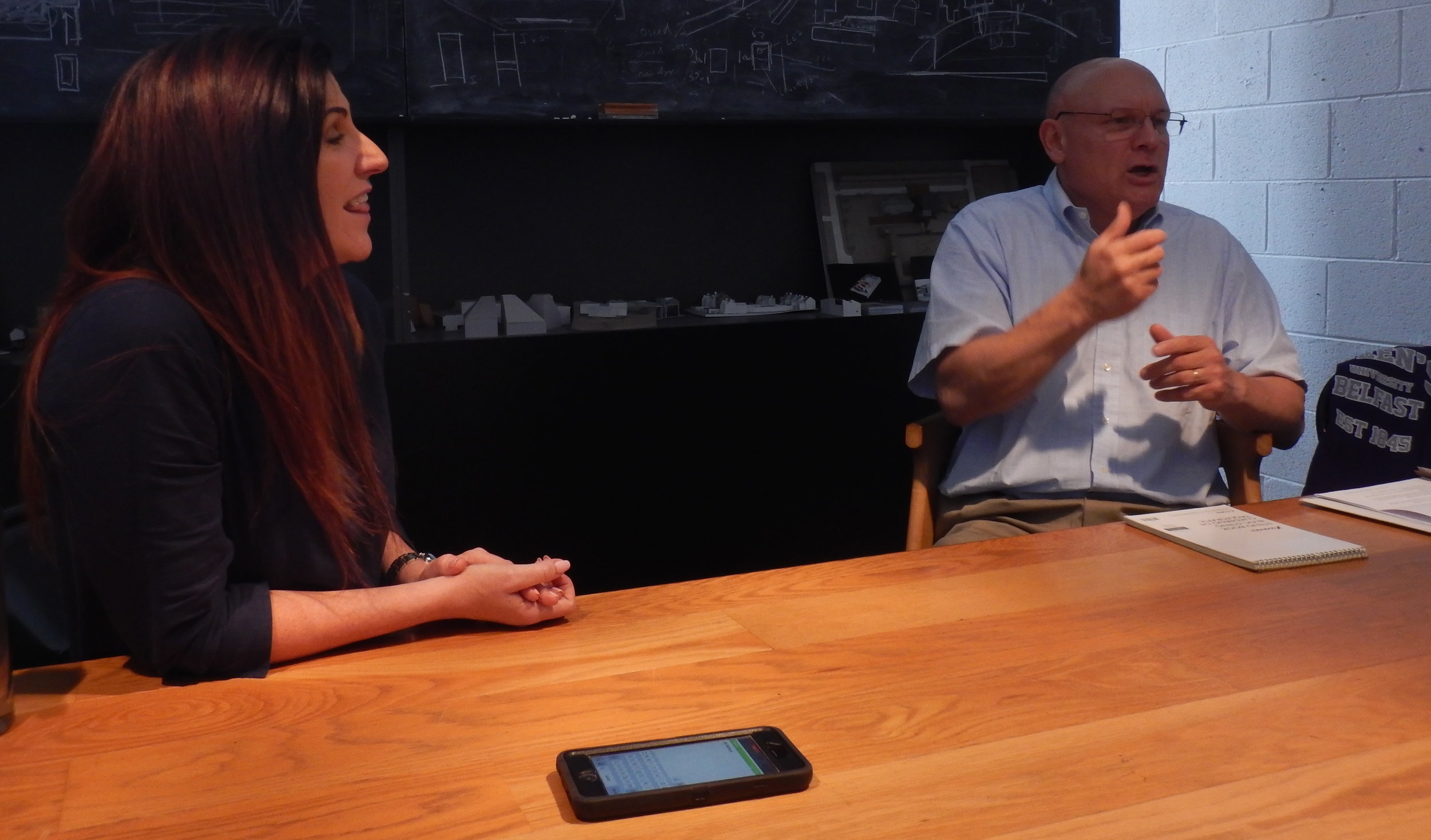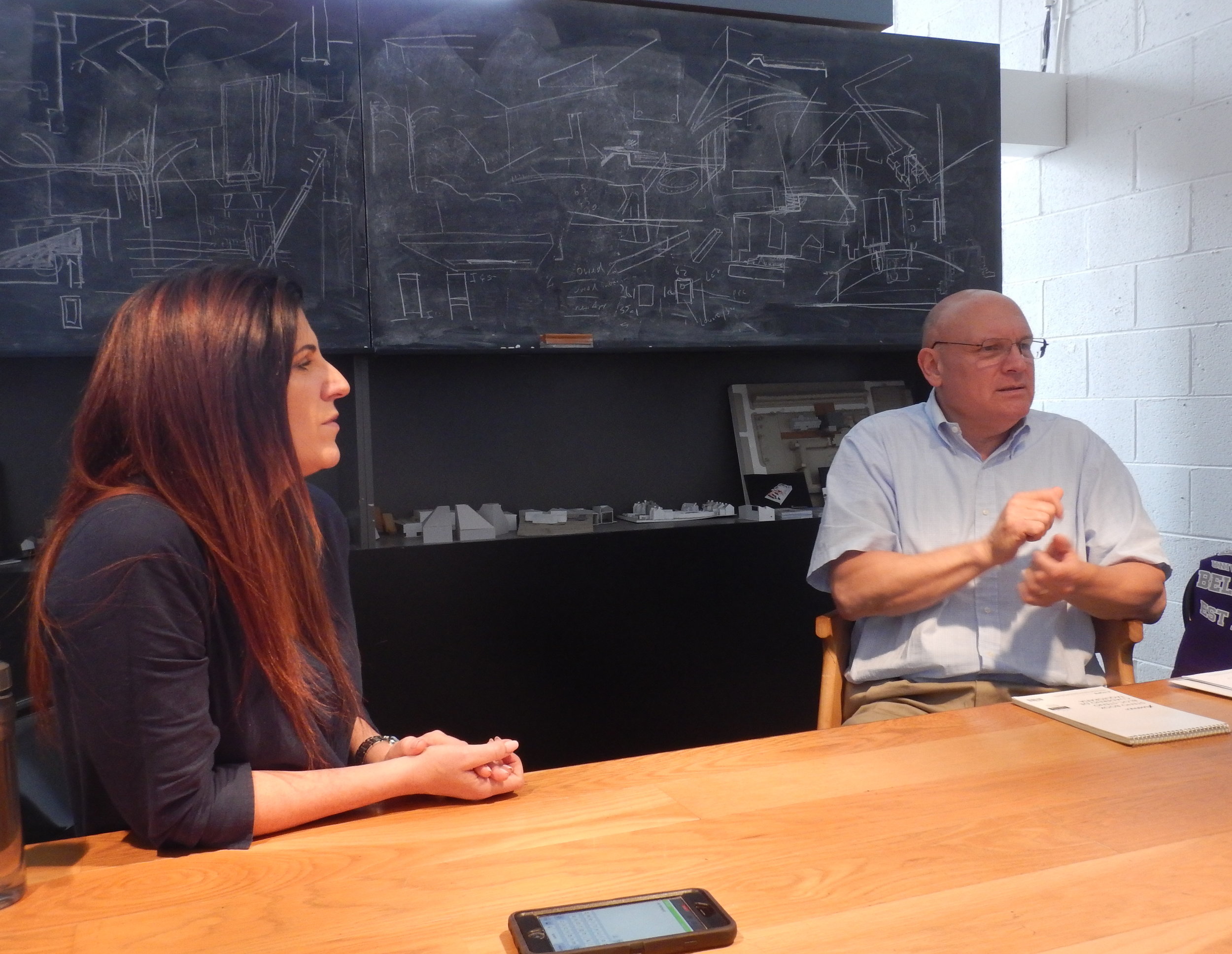Back to Belfast: 2017 Edition
by Brent C. Elder and edited by Michael A. Schwartz
Walking into the frenetic international terminal at New York’s JFK Airport, I find a familiar face voraciously reading the day’s edition of the New York Times. Michael Schwartz and I hug with the embrace of brothers, and sign excitedly about our next Tangata Group adventure. Next stop: Belfast, Northern Ireland, the land of “a terrible beauty.”
We returned to Belfast to use the remaining travel funds bequeathed to us from the Joan Burstyn Endowed Fund for Collaborative Research Competition Award at Syracuse University in 2016. Last year in Belfast, Michael and I explored the experiences of Deaf people in Northern Ireland accessing the justice system. This trip was about casting a wider net within the same topic, and planned to interview nine Deaf/hard of hearing/Deaf allies to better understand how accessible (or not) the system of justice is in Northern Ireland. The UN Convention on the Rights of Persons with Disabilities (UNCRPD), an international treaty requiring States Parties to ensure equal communication access for their Deaf citizens, provides the legal framework for our analysis. The UK ratified the UNCRPD in 2009.
A feverish interview schedule coupled with a mild case of jet lag made for a whirlwind in Belfast. We interviewed eight Deaf/hard of hearing people and one hearing ally with extensive experience in the Deaf community over the course of three days. Our research team included myself, Michael, our British Sign Language (BSL) interpreter, and at times, the incomparable American Sign Language (ASL) interpreter, Trish Schwartz. The schedule was set by our wonderful friends led by Colette McMahon at the British Deaf Association (BDA), and the inestimable Brian Symington, our wonderful guide in the Deaf community, who provided context and a sense of the community’s history. Our interview topics touched on Deaf experiences in various legal settings including: interactions with the police, drafting wills, buying houses, and being called to jury service and being excused because of deafness. The stories of our Deaf interlocutors illuminated their tireless work to realize the equal communication access that is required under domestic law and the UNCRPD.
“Our interview topics touched on Deaf experiences in various legal settings including: interactions with the police, drafting wills, buying houses, and being called to jury service and being excused because of deafness.”
After each day of interviews, we uploaded the audio recordings to Dropbox, where our transcriptionist extraordinaire, Kathleen Savage, located in Florida, would send us each cluster of transcribed interviews by the day’s end. This allowed us to begin the coding/analysis process, which led us to our deeper understanding of the complexities of accessing the system of justice as explained by project participants.
Of course, the interviews were the main focus of our trip, but we strongly feel that engaging in such transnational disability research requires more depth and involvement when engaging with communities who allow themselves to be researched. Thus, in Belfast, we happily spent the hours outside our interviews having coffee, sharing meals, and catching up with our friends, colleagues, and allies in the Belfast Deaf community.
To get a better grasp on the importance and complexity of each interview, Michael and I coded each participant’s words line-by-line. We knew we had to act fast because memory fades over time. Our intimate collaborative process is nearly impossible when conducting research, analysis and writing from separate locations (Philadelphia and Syracuse). A graceful omen blessed our return home when Icelandair bumped us to “Saga Comfort Class.” Sitting in large armchairs with plenty of legroom and arm space, Michael fine-tuned the rough draft of a research article we produced in one short week, and I wrote this blog.
Mission accomplished with legroom to spare.
Some Pictures From Our Recent Trip
